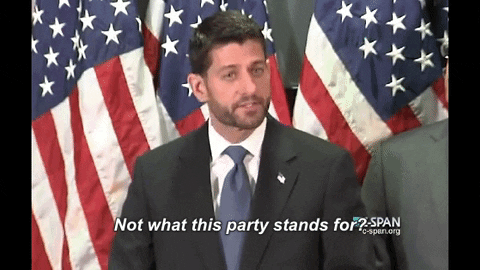Greg Sargent of the Washington Post catches House Speaker Paul Ryan saying something extremely revealing about President Obama’s decision to inveigh against Donald Trump’s bigotry in his State of the Union address.
It sort of degrades the presidency to then talk about primary politics in the other party, during primaries. That’s not what presidents ought to be talking about in State of the Union addresses.
At a narrow but crucial level, Ryan’s admitting obliquely that the party depends on white nationalists for its survival and appealing to their sensibilities creates problems—something most Republicans deny. The party’s discomfiture with Trump’s campaign is in many ways an expression of the view that Trump takes rhetoric too far, or jeopardizes the White House, not that Trump is unacceptably xenophobic. Ryan’s at least acknowledging there’s trouble here.
But from a higher elevation, it says a lot about how Republicans view racism in general: not as an issue that demands mass condemnation, but as something to be managed more quietly. Ryan isn’t blind to the issue, but as a political and ideological matter he can only see so far. He’d have a point if Obama had, say, tried to elevate Jeb Bush over Marco Rubio for partisan gain. But when a politician recruits millions of followers with bigotry, it isn’t just a GOP housekeeping problem: It’s a matter of national urgency.
